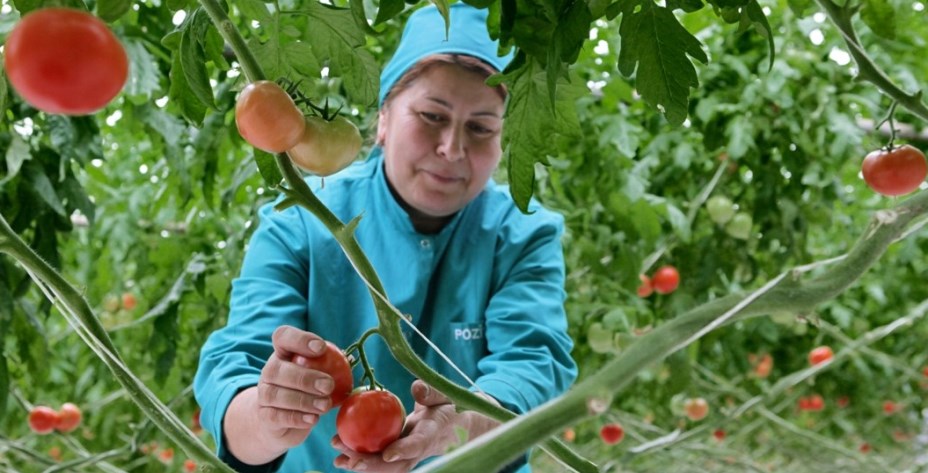Over the past decade, Azerbaijan has made remarkable progress in reducing poverty and boosting shared prosperity. Poverty has fallen from nearly half the population in the early 2000s to about five percent in 2013. Meanwhile the middle class has grown significantly, from about four percent of the population to 29 percent.
These achievements are largely due to extensive public spending from oil revenues. But in the current environment of low oil prices, a slowdown in oil production, and uncertain regional economic prospects, Azerbaijan is looking for a new growth model in which the private sector plays a central role.
Access to finance is one of the biggest challenges for businesses in Azerbaijan, according to the World Economic Forum’s Global Competitiveness Report, 2014-2015. Since 1995, when Azerbaijan became a member of IFC, about half of IFC’s investments in Azerbaijan have been channeled through financial intermediaries, including banks and microfinance organizations, and prioritized increasing access to finance for micro, small, and medium enterprises (MSMEs) and women entrepreneurs.
Yet more can be done. IFC’s investments and advisory services in the financial sector will remain a strategic priority, and IFC will continue to provide capital, liquidity, and trade finance to well managed private banks, prioritizing MSME, gender, and sustainable energy finance. But IFC also aims to help build capacity within the banking sector to better manage risks and improve corporate governance, while helping improve financial markets infrastructure and introduce customized financial products and services such as agri-finance and agri-insurance.
One example of how IFC’s support works is Aqroinvest, a microfinance organization in Azerbaijan that struggled to attract investments mainly because of weaknesses in corporate governance.
“We asked IFC to identify the most critical deficiencies in our corporate governance and received recommendations for improvement,” said Ayub Akhmadov, General Director of Aqroinvest. “After IFC and its partner, the Association of Risk Professionals of Azerbaijan, provided these advisory services, we were able to renew the board, strengthen our internal controls and audit function, and streamline risk management within the organization.”
Soon after, Aqroinvest attracted $2.95 million in financing from Deutche Bank, Oikocredit, Bistum Bank Essen, and the Frankfurt School of Financial Services.
In recent years, Azerbaijan has made progress in improving the business environment as measured by the World Bank Group’s (WBG) Doing Business report rankings and by the World Competitiveness Index. Yet some parts of the regulatory regime continue to be a challenge to entry and expansion in the private sector. To ensure balanced development and international competitiveness and generate more employment opportunities, the country needs to simplify its business environment for businesses outside the oil and gas sector.
For example, IFC’s analysis of the horticulture value chain identified greater access to seeds, value chain strengthening, and regulatory streamlining as key improvements to encourage investment. Agriculture is the country’s leading employer and the base of its non-oil economy. The country has a strong comparative advantage in exporting fresh fruit and vegetables.
Yet an underdeveloped agri-food supply chain and low productivity remain key challenges. IFC, through its future investment climate project (part of the World Bank Group Trade and Competitiveness Global Practice), plans to focus on these issues.
“We are committed to helping Azerbaijan’s private sector create new jobs and increase growth,” said Jan van Bilsen, IFC Regional Manager for the South Caucasus. “IFC’s investments and advisory services in the financial sector will remain a strategic priority, helping to increase access to finance, one of the key challenges for many businesses across the country. Our advisory work will also aim to address regulatory issues for businesses and support the government’s agenda of leveraging public-private infrastructure finance mechanisms.”
These are included in the new Country Partnership Framework (CPF) for Azerbaijan, endorsed by the WBG Board of Executive Directors in July 2015. The CPF covers the 2016 to 2020 fiscal years and outlines the WBG’s support for sustainable, inclusive, and private sector-led growth in the country.
IFC’s primary focus will be on supporting the CPF’s economic competitiveness agenda, continuing and strengthening initiatives to boost financial inclusion, and improvements in the business environment. IFC will also seek investment and advisory opportunities to support the real sector, including critical infrastructure projects, agriculture, and other export-oriented sectors.
September 2015
